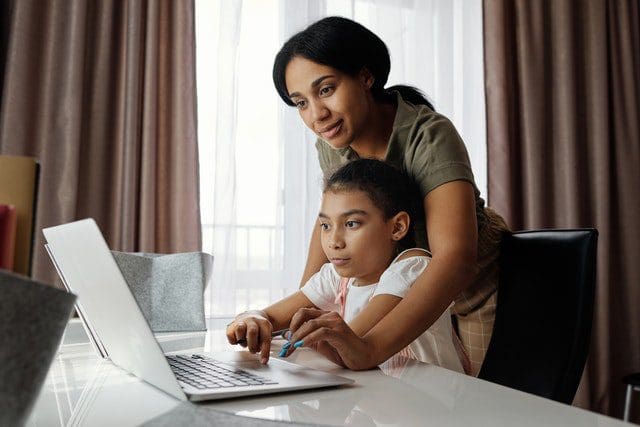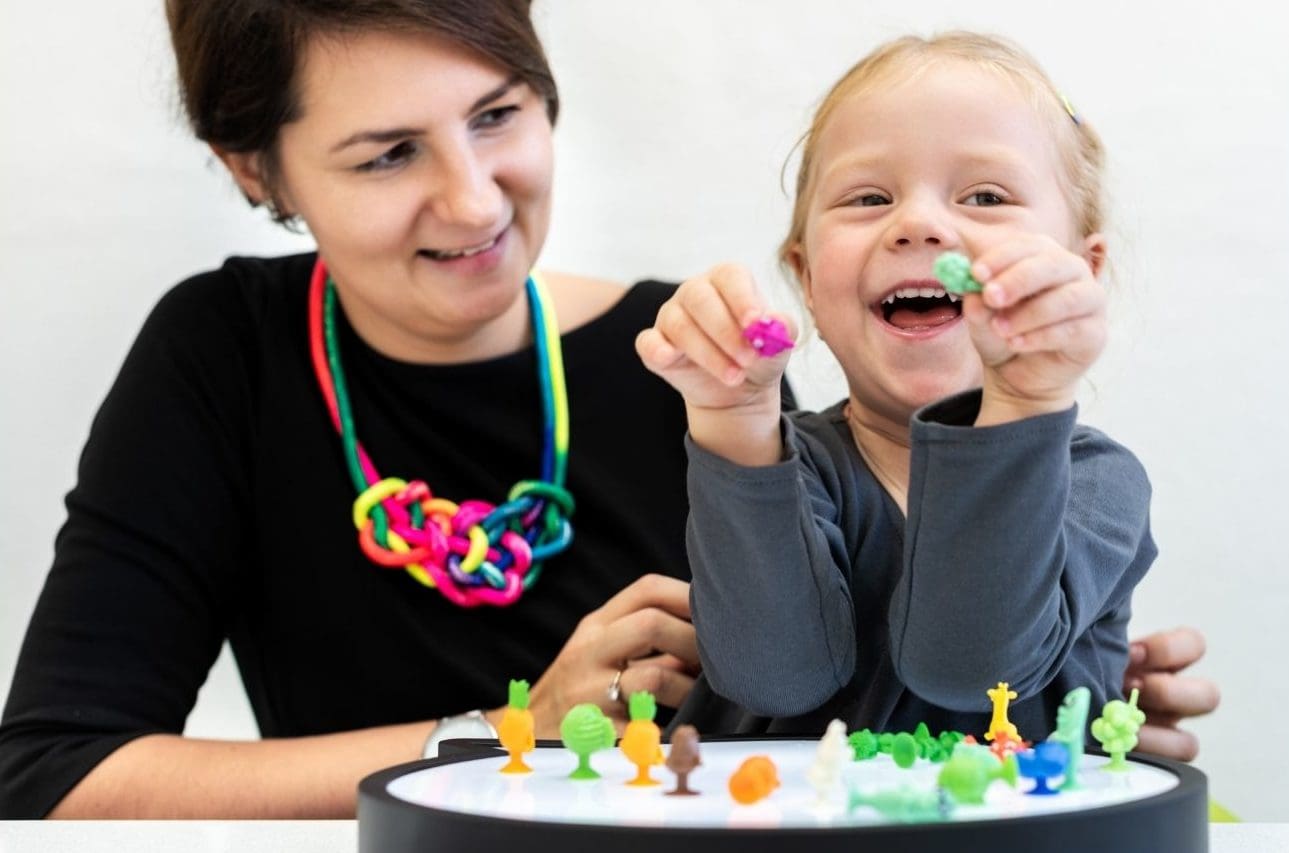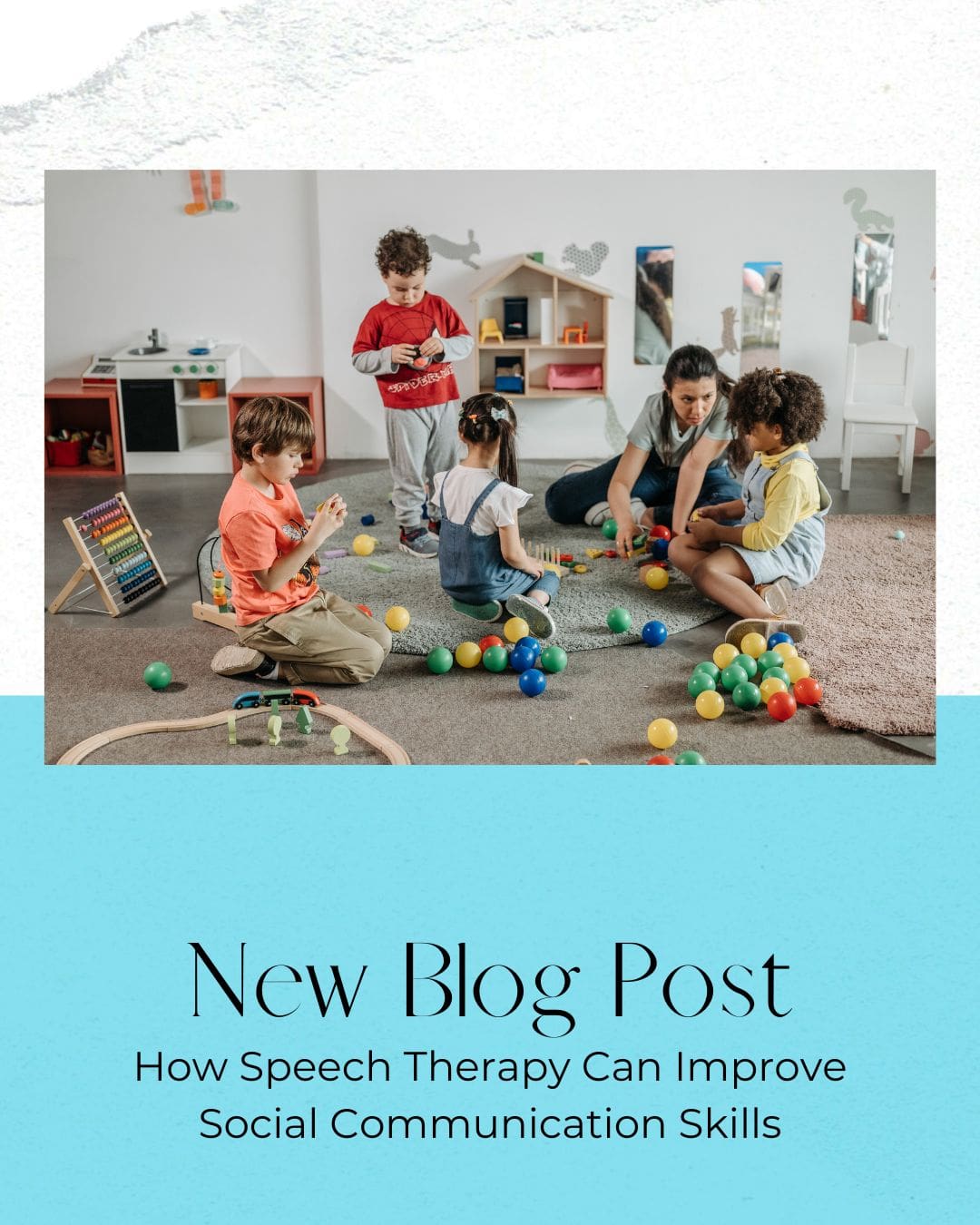
OCCUPATIONAL
THERAPY

SPEECH
THERAPY

FEEDING
THERAPY

MYOFUNCTIONAL
THERAPY
Flexible Service Options For Your Family

Traveling Services
Your clinician will travel to your home, your child’s daycare, preschool, private school or after school program for in-person therapy at a frequency that works for you and your child’s schedule and in accordance with their plan of care. Home sessions can be provided indoors or outdoors to suit your comfort level as weather permits. Therapy provided in the child’s natural environment, with an emphasis on parent involvement, gives you the opportunity to participate in your child’s therapy session.It also helps you learn how to support your child’s progress on a daily basis.

Teletherapy Services
Remote sessions, also known as “teletherapy,” offer a convenient alternative to traditional in-person speech-language and occupational therapy sessions. Conducted virtually over a computer or tablet device, teletherapy allows us to implement your child’s current therapy plan using familiar activities in the comfort of your home. This option is particularly beneficial when your child is sick or when you’re traveling.
With teletherapy, you have the opportunity to play a more active role in your child’s progress by observing or participating in sessions. It’s a flexible and effective way to ensure continuity of care and support your child’s development, even during challenging circumstances.

In Office
We understand that effective communication is crucial for personal and professional growth. Whether you’re a child struggling with speech development or an adult looking to enhance your communication skills, our experienced team of speech therapists are here to help. With a warm and inviting atmosphere, our office provides a comfortable space where you can embark on your journey towards improved speech and language abilities. Through personalized assessment, tailored treatment plans, and engaging therapy sessions, we aim to empower individuals of all ages to overcome speech challenges and gain confidence in their communication abilities
We are accepting new patients
Why Choose Us

Experienced
Each therapist has years of experience with advanced degrees and specialties, allowing us to deliver the most evidence based treatment.

More Affordable
We accept most major health insurances to allow access to affordable services for your child.

Convenient
In-home therapy is easier to schedule and saves time. There is no driving or waiting; we reduce the burden on families by coming to you. The added convenience adds up to more consistent therapy and faster progress.

Simple
Our streamlined intake processes allow you to get started with therapy right away.
Teletherapy offered throughout Massachusetts
Call us at 617-829-3003 to get started
We help with:
Late talkers
A child not using verbal language to communicate by 18 months of age.
Hard to Understand Speech
Difficulties formulating speech sounds which impacts the ability to be understood.
Childhood Apraxia of Speech (CAS)
Difficulty with motor movements of the lips, tongue, jaw and highly unintelligible.
Language Delay
Has trouble following directions, a limited vocabulary, or difficulty combining words into sentences.
Fluency (Stuttering)
Repetitions, prolongations, or abnormal stopping of sound and syllables in connected speech.
Social Skills
Difficulties knowing what to say, how to say it, when to say it, and non-verbal communication skills.
Feeding & Swallowing
Stressful mealtimes, limited diet, frequent coughing or choking while eating.
Orofacial Myofunctional Disorder (OMD)
Struggling with talking, swallowing, and breathing through the nose.
Tongue & Lip Ties (Tethered Oral Tissues)
Restricted tongue and lip movement impacting speech, feeding, and swallowing.
Developmental Milestones
Not rolling over, crawling, or sitting up independently.
Fine motor skills
Decreased control of hands, wrists, or fingers.
Handwriting
Difficulties writing letters, holding a writing utensil, or messy handwriting.
Sensory Processing
Sensitive to light, sound, touch, taste, or smell.
Hand-Eye coordination
Uncoordinated movements in daily activities.
Attention
Difficulty paying attention to tasks for the expected amount of time based on age.
Self-Care Skills
Difficulties dressing, shoe tying, bathing or groom independently.








